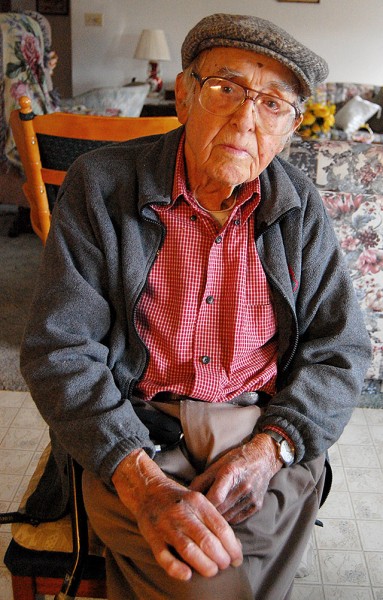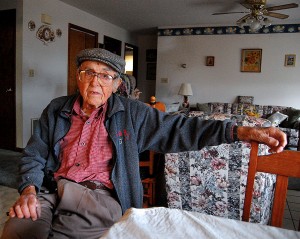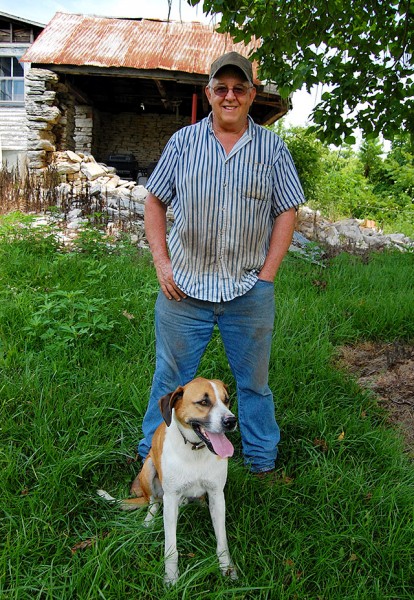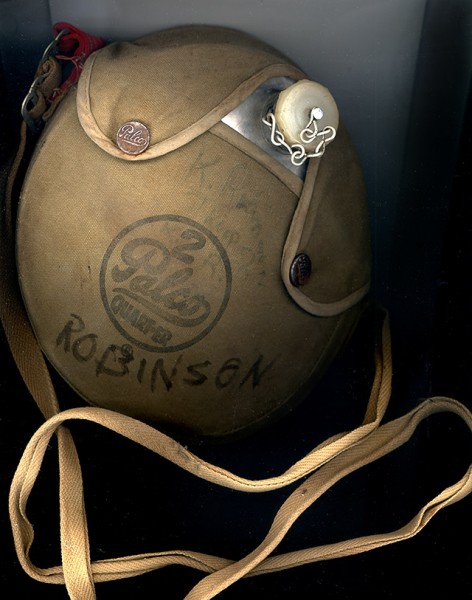 Thursday was a pretty productive day. Back in 2013, I wrote about finding Keith Robinson’s Boy Scout canteen. Mother kept bugging me, “When is that boy going to come by and pick it up?”
Thursday was a pretty productive day. Back in 2013, I wrote about finding Keith Robinson’s Boy Scout canteen. Mother kept bugging me, “When is that boy going to come by and pick it up?”
Keith, my go-to guy for all things railroading emailed he was going to be escaping Kansas City for a few days to come to Cape. FINALLY, a chance to get rid of this crazy canteen.
We made arrangements to meet at the Jackson at the Cape County History Center. It turned out that he and his dad knew some of the people mentioned in the museum’s exhibits.
Journey to the Land of Liver & Onions
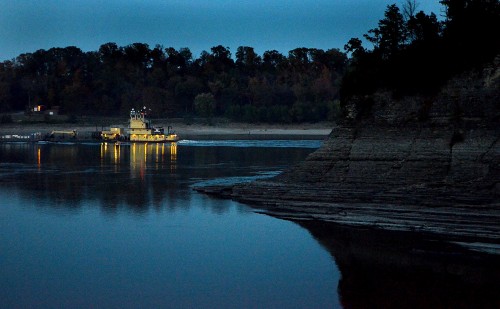 Museum director Carla Jordan shares my love of liver and onions, so she said she’d buy dinner at the Mississippi Mud in Altenburg if I’d drive. I rhapsodized about how good the Mud’s L&O were on September 11. Well, they were even better Thursday night. The meat was so tender you could cut it with a fork; the onions were grilled just right, and my two sides of cheesy mashed potatoes and corn couldn’t be beat.
Museum director Carla Jordan shares my love of liver and onions, so she said she’d buy dinner at the Mississippi Mud in Altenburg if I’d drive. I rhapsodized about how good the Mud’s L&O were on September 11. Well, they were even better Thursday night. The meat was so tender you could cut it with a fork; the onions were grilled just right, and my two sides of cheesy mashed potatoes and corn couldn’t be beat.
Carla and I shared our table with Gerard Fiehler and Lynn Degenhardt; two more museum folks filled in the table next to us. Lips were smacked and plates were cleaned. I can see myself making a pilgrimage to Altenburg every Thursday night until I get my fill of Innards and Onions.
I can’t go to East Perry county without dipping down to Tower Rock. Carla and Gerard piled into the van and we got to The Rock at the crack of dusk. Our timing couldn’t have been more perfect. Click on the photo to make it larger.
Here’s why I don’t wade
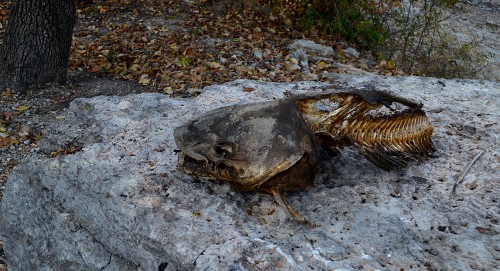 The river’s going to have to fall about another three feet before you’ll be able to walk out to Tower Rock.
The river’s going to have to fall about another three feet before you’ll be able to walk out to Tower Rock.
I was up there two days earlier hoping the leaves had turned, but they still needed a few more days of cold weather. This catfish was sitting on the rock where Mother used to scoop up some of the best persimmons to ever hang on a tree.
My thought was, “If the fisherman didn’t keep this guy because he was ‘too small,’ I don’t want to stick my feet into any water that would hold his big brother.”

